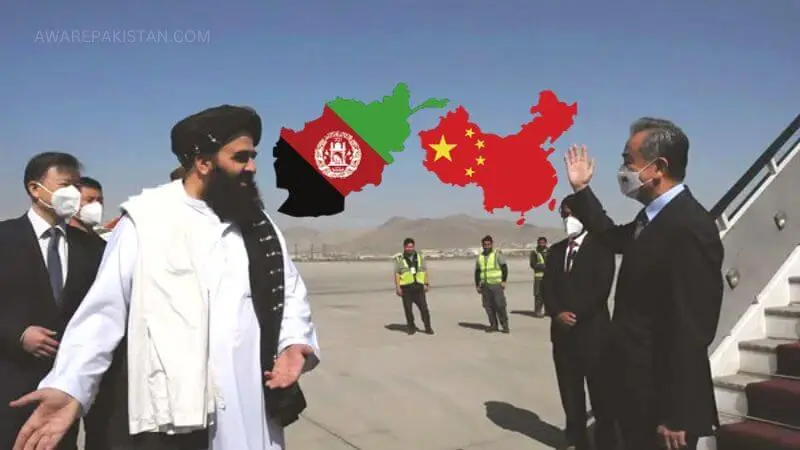Sun Tzu’s timeless wisdom, “In war, the way is to avoid what is strong and to strike at what is weak,” seems eerily prescient as we witness the consequences of the United States’ tumultuous exit from Afghanistan. The resulting power vacuum has lured various international actors into the fray, yet amidst the media’s focus on Afghanistan’s predicament, it is equally imperative to scrutinize China’s role in this evolving geopolitical landscape. This op-ed examines the diverse opportunities that have arisen for China following the U.S. withdrawal and the complex ramifications these entail for global and regional stability.
China undeniably stands as one of the world’s preeminent superpowers. As Napoleon Bonaparte once predicted, “China is a sleeping giant. Let her sleep, for when she wakes, she will move the world.” This prophecy has materialized into reality, as China has transitioned from a dormant giant to an economic juggernaut with global influence. With exponential growth in both economic and military prowess, China now represents a formidable challenge to the United States’ longstanding hegemony. The recent U.S. withdrawal from Afghanistan serves as an opportune moment for China to fortify its regional relations and further amplify its global reach.
When evaluating China’s interests in Afghanistan, stability emerges as the paramount concern. Afghanistan has historically been a sanctuary for terrorist groups, instilling apprehension in Beijing regarding the potential spillover of extremism and terrorism across its borders, especially via the vulnerable Wakhan corridor. Furthermore, there is a palpable fear that the situation could be manipulated to incite Uyghur Muslims, potentially fomenting regional instability. Consequently, China is actively pursuing cooperation with the Taliban to facilitate peace and stability, urging the group to address these critical issues.
The United States’ withdrawal has created a power vacuum that China is keen to fill, setting the stage for a complex interplay of interests and alliances.
Additionally, Afghanistan’s vast reservoir of mineral resources, including copper and lithium, has captured China’s attention. Given China’s status as the world’s largest automobile producer, these resources are of immense strategic importance, particularly with lithium’s application in car battery manufacturing. Thus, China aspires to capitalize on Afghanistan’s mineral wealth.
Incorporating Afghanistan into the grand One Belt and One Road Initiative (BRI) aligns seamlessly with China’s strategic blueprint. Beyond the reconstruction of Afghanistan’s war-ravaged infrastructure, the inclusion of Afghanistan in the BRI fosters vital connections between South Asia, Central Asia, the Middle East, and China. Afghanistan’s geographical proximity to the Arabian Sea further accentuates its significance within the BRI, positioning it as a gateway of pivotal importance. China is diligently working to establish a prominent axis of influence stretching from Pakistan through Afghanistan to Iran.
Moreover, an extension of the China-Pakistan Economic Corridor (CPEC) into Afghanistan could facilitate alternative trade routes that circumvent traditional maritime paths, thus reshaping regional trade dynamics in favor of China and its partners.
Afghanistan also presents a unique opportunity within the context of the Regional Comprehensive Economic Partnership (RCEP), which encompasses 15 nations across the Asia-Pacific. China’s persuasive influence could prompt Afghanistan’s participation, furthering regional economic integration.
However, for China, investing in Afghanistan necessitates adept diplomacy. The U.S. has expressed opposition to the CPEC, and Afghanistan’s role as a linchpin in regional connectivity has already stirred tension with Washington. This underscores the imperative for Afghanistan to consolidate stability to fully capitalize on Chinese investments while adroitly managing its relationships with other global powers.
China’s engagement in Afghanistan carries profound implications for diplomacy, economics, and security. The U.S. withdrawal has exposed both risks and opportunities for China, contingent upon its prudent navigation of the intricate Afghan landscape, given the nation’s inherently unpredictable nature. Careful policy formulation is indispensable to securing a mutually beneficial outcome, safeguarding China’s interests while avoiding the pitfalls that befell the former Soviet Union and the United States. Afghanistan’s fate hangs precariously in the balance, with China poised to play an indispensable role in shaping it.










